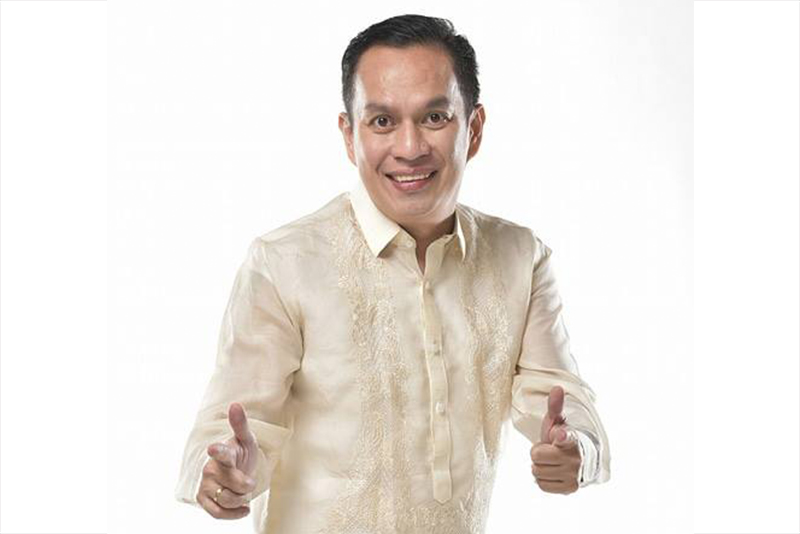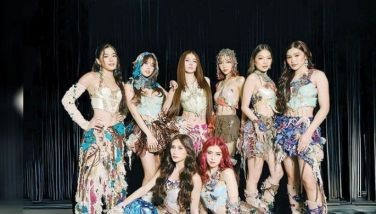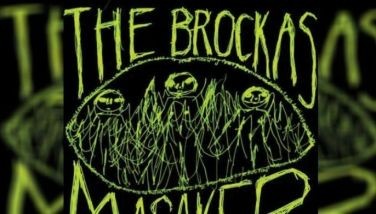Dead Poets Society with depth

February 24, 2007 | 12:00am
 If I were a crass young Hollywood executive, I’d pitch The History Boys as Dead Poets Society meets Another Country. It has similar ambitions as the former (let’s all love and spout poetry!) and the British boys’ school setting of the latter (along with the inevitable same-sex crushes).
If I were a crass young Hollywood executive, I’d pitch The History Boys as Dead Poets Society meets Another Country. It has similar ambitions as the former (let’s all love and spout poetry!) and the British boys’ school setting of the latter (along with the inevitable same-sex crushes).
But I’d be doing The History Boys a major disservice. The film, an adaptation of British playwright Alan Bennett’s critically acclaimed drama, is set in an all-boys British prep school and does have a few lads spouting poetry, but it doesn’t have Dead Poets’ bogus schmaltz or Another Country’s Rupert Everett, Colin Firth and Cary Elwes.
Fortunately, it introduces a cast of similarly promising, charismatic young thespians, all of whom were in the original National Theatre production in London, which then moved to Broadway and is at a cinema near you (in Manila it’s playing at the Ayala Cinemas in Greenbelt 3 and Glorietta 4).

Based on the glowing theater reviews, I first tried to see The History Boys when I happened to be in London last year, but it was sold out. In fact, the whole season was sold out, and not just The History Boys, but the entire season of every single National Theatre production was sold out. Which leads me to believe that the Brits really take their theater seriously.
I was finally able to see it on Broadway, which Americans take seriously but not as seriously as Hollywood, and sat with a bewildered audience of middle-American tourists who found little to relate to in the play. What, like a class of eight British high schoolers trying to pass the entrance exams for Oxford and Cambridge (Oxbridge, in Britspeak) isn’t relatable?
Perhaps it’s because the boys, all smart as whips and hyper-articulate, have an unnerving penchant for reenacting scenes from Now, Voyager and Brief Encounter in the classroom. During language class, they practice conversational French by pretending one boy is a prostitute and another, a client. Perhaps it’s because the setting is early ’80s, Thatcher-era England, when unemployment and Duran Duran music reigned.
But I think the thing that creeps people out the most about The History Boys is that there is not one, not two, but three gay characters, and two of them are the boys’ history professors.
Less threatening is Hector (the superb Richard Griffiths, who plays Uncle Vernon Dursley in all the Harry Potter movies), who has taught the boys to believe, as the poet A.E. Housman puts it, that "all human knowledge is precious whether or not it serves the slightest human use." It is he who has filled the boys’ heads with useless snippets of Bette Davis dialogue, as well as grand chunks from the rest of the humanities, from Thomas Hardy to Walt Whitman. Hector also likes to cop a feel from the hapless boys he gives rides home to on his motorbike, but his students tolerate it with the good humor they’d extend to a dotty but dear uncle who can be forgiven an eccentricity or two.
More creepy is Irwin (Stephen Campbell Moore), the substitute teacher who represents the new guard in education. Rote memorization and regurgitation of historical facts and figures is out, and for sure will not get you a spot in hallowed Oxbridge. His "progressive" methods involve actually thinking about history, turning it on its head, and asking the questions that dare not be asked. Like, perhaps Stalin and Hitler weren’t actually monsters, just vastly misunderstood. If The History Boys were set today, Irwin would spin Osama bin Laden as a sympathetic figure, and George W. Bush as the smartest man alive.
Oh, and Irwin’s also secretly in love with Dakin (Dominic Cooper), the class’s straight heartthrob.Irwin’s approach excites and stimulates the boys  Dakin in particular  in perhaps the wrong way.
"Our eyes meet when we both look at Dakin," complains a heartsick classmate, also a victim to the love that dare not speak its name.
Perhaps the movie’s not-so-hidden gay agenda can’t be helped, as Bennett himself is openly gay. All-boys schools tend to follow the ancient Greek method of education (where women didn’t play a huge part) and, as one character says in the movie, the passing on of information from an older teacher to a younger student is "inherently erotic."
Disturbing as these themes may be, especially in these times of Catholic priests and altar boys, The History Boys is one of the smartest, most exhilarating movies I’ve seen this year, and it’s actually better than the play.
Nicholas Hytner, who directed both the play and the movie, wisely chose to omit Duran Duran from the soundtrack and employ ’80s bands with more cred, like The Clash, The Smiths and The Cure. Famous for directing big stage deals like Miss Saigon, Hytner always manages to bring a slick modernity to all his productions without sacrificing depth or profundity. In the movie’s case, he successfully liberates both actors and audience from the claustrophobic stage setting of the classroom, and revels in every subtle vocal nuance and facial expression of his phenomenally talented cast.
The only female history teacher is played by Frances de la Tour, another Harry Potter alumnus (Madame Maxine) who utters some of the best lines: "History is a document of 500 years of masculine ineptitude. History is women following behind with a bucket."
Like the inspired teaching in the film, The History Boys got me thinking and excited about language again. Heck, it even made me open to higher learning and possibly going back to school, which is definitely one thing Dead Poets Society could never convince me to do.
BrandSpace Articles
<
>
- Latest
- Trending
Trending
Latest
Trending
Latest
Recommended





























